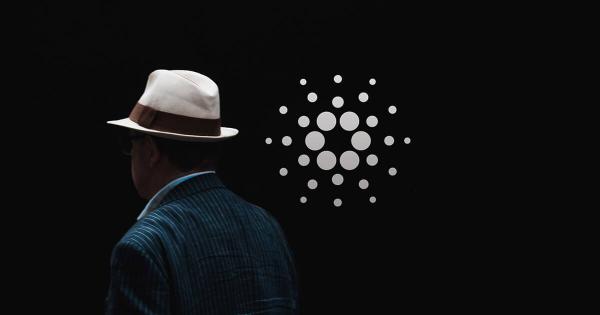The next big protocol upgrade planned for Cardano will bring token locking to the blockchain, a feature that will prepare the platform for smart contracts and native assets. However, the most important thing token locking will enable is a voting mechanism that will be the cornerstone of Voltaire’s governance functionality.A small step for Cardano, a huge leap for governanceThe next protocol upgrade for Cardano is set to bring about a small technical change that will dramatically change the way the protocol works. IOHK, the company behind the blockchain, said that the next protocol upgrade being prepared to deploy on mainnet will enable token locking.This development change, called Allegra, will happen alongside the integration of metadata on the network and will represent the next significant upgrade for Goguen. Token locking, while a small technical change to the consensus protocol overall, will have a significant impact on the platform as it will prepare it for smart contracts and the creation of native assets on Cardano.However, the biggest impact token locking will have on the network will be seen in governance, as it provides an important piece of Voltaire’s governance functionality that will support an advanced voting mechanism.Token locking, according to IOHK, will happen behind the scenes and will not affect the experience of ADA holders as Daedalus and Yoroi wallets will both be automatically updated.Token locking will enable complex smart contracts on CardanoWhat token locking will bring to Cardano is the ability to record that a specific token issued on the network is being used for a particular purpose. This will be an especially important update once more tokens are issued on Cardano, as locking will enable a certain number of tokens to be reserved for a specific period of time so they can gain a certain benefit.These benefits include, among other things, running complex smart contracts and voting.The first time token locking will be used within the Voltaire mechanism is with the Project Catalyst Fund2 voting. Users holding ADA that want to participate in the voting process will need to “lock” some of their funds in order to participate in the voting system. The locked tokens will represent users’ voting rights and prove that they have a certain number of votes. This means that individuals won’t be able to allocate more votes than they actually hold, vote on contradictory ideas, or duplicate their votes.While ADA holders won’t be able to tell that the update has happened, all the nodes that run the Cardano network will have to approve the change. IOHK noted that all notes will have to reach consensus on the updated version of Ouroboros that’s set to be introduced by downloading the new version of the code and checking its operation.
“IOHK’s development teams will support stake pool operators and monitor the network throughout this process to ensure that the transition goes smoothly,” the company said in the blog post.








